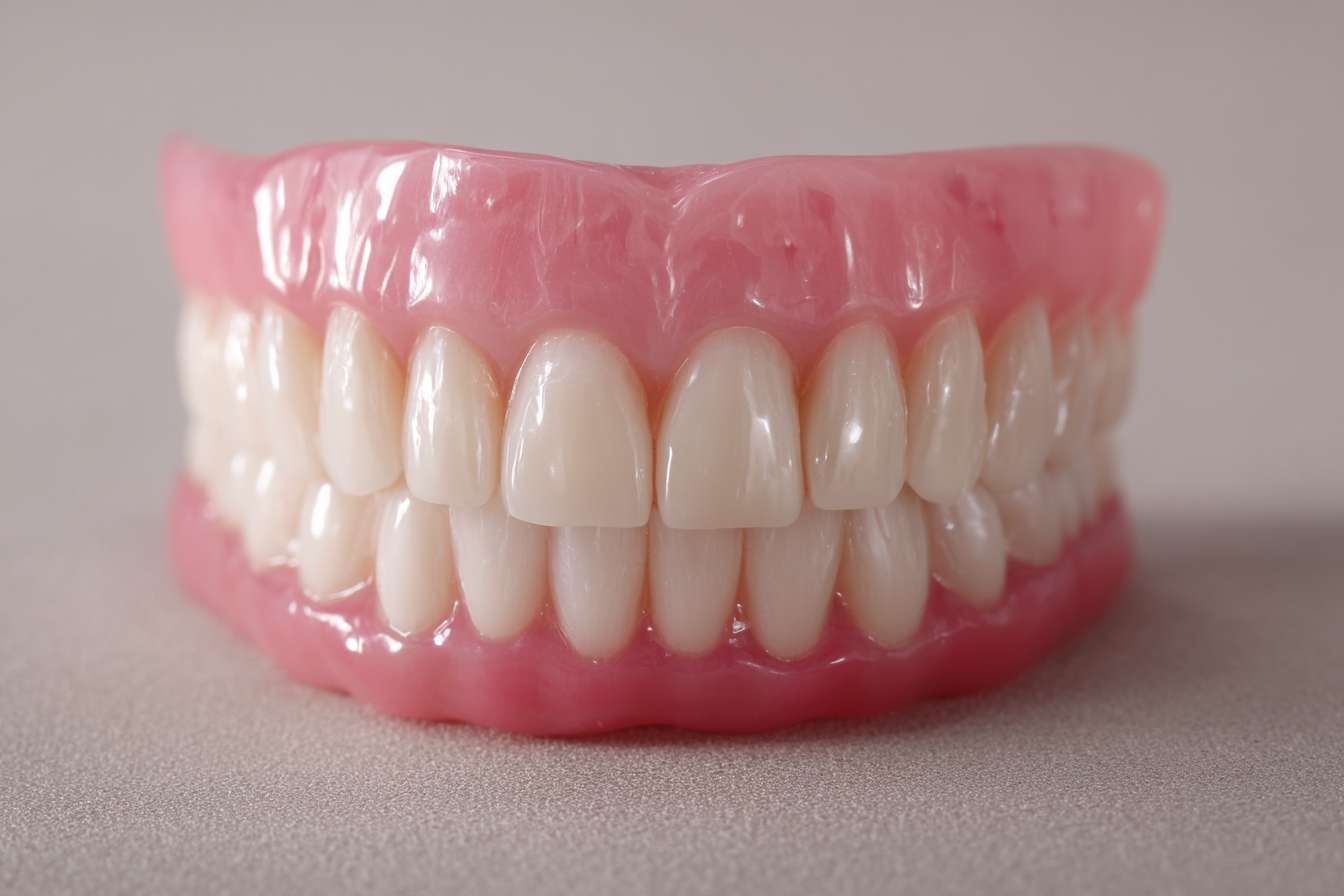What Are Full Mouth Implants and How Can They Transform Oral Health?
Full mouth dental implants represent a comprehensive solution for individuals who have lost most or all of their teeth. This advanced dental restoration technique involves the strategic placement of multiple implants to support an entire arch of prosthetic teeth, effectively replacing conventional dentures with a permanent, stable alternative. Understanding how these implants work and their potential impact on oral health is essential for those considering this significant dental investment.

Full mouth dental implants offer a revolutionary approach to tooth replacement for people suffering from extensive tooth loss. Unlike traditional dentures that rest on the gums, full mouth implants are anchored directly to the jawbone, providing a foundation that closely mimics natural teeth in both function and appearance. This comprehensive dental solution can dramatically improve quality of life by restoring proper chewing ability, speech clarity, and facial aesthetics while potentially preventing further oral health complications.
Understanding Full Mouth Implants: An Overview
Full mouth dental implants typically involve the placement of four to eight titanium posts per arch that integrate with the jawbone through a process called osseointegration. These implants serve as artificial tooth roots that support a complete set of prosthetic teeth. The procedure can be approached in different ways, including the popular All-on-4 technique, which uses four strategically placed implants to support an entire arch of teeth, or more traditional approaches utilizing six to eight implants per arch.
The implantation process generally occurs in stages, beginning with any necessary preparatory procedures such as tooth extractions or bone grafting. Once the jawbone is ready, the implants are surgically placed, followed by a healing period of several months. After osseointegration is complete, abutments are attached to the implants, and finally, the permanent prosthetic teeth are secured to these abutments, creating a fully functional and aesthetically pleasing smile.
The Benefits of Full Mouth Implants for Oral Health
Full mouth implants offer numerous advantages beyond mere cosmetic improvement. Perhaps most significantly, they help preserve jawbone density and structure. When natural teeth are lost, the jawbone begins to deteriorate due to lack of stimulation from tooth roots. Dental implants mimic this natural stimulation, preventing bone loss and maintaining facial structure over time.
Additionally, full mouth implants distribute chewing forces more evenly than conventional dentures, allowing patients to enjoy a wider variety of foods with greater comfort. This improved chewing efficiency can lead to better nutrition and overall health. The fixed nature of implant-supported prosthetics also eliminates many of the common complaints associated with removable dentures, such as slipping, clicking sounds, and gum irritation.
From an oral hygiene perspective, implant-supported full arch restorations can be easier to maintain than natural teeth affected by severe periodontal disease. While they still require diligent cleaning, the prosthetic materials are not susceptible to decay, and their design often facilitates better access for cleaning compared to problematic natural teeth.
Potential Risks and Considerations of Full Mouth Implants
Despite their many benefits, full mouth implants are not without potential complications. Surgical risks include infection at the implant site, injury to surrounding structures, nerve damage, and sinus problems (particularly for implants placed in the upper jaw). Post-operative complications such as implant failure or peri-implantitis (inflammation of tissue around an implant) can also occur.
Candidacy factors must be carefully evaluated before proceeding with full mouth implants. Patients need adequate bone volume to support the implants, though bone grafting procedures can sometimes address deficiencies. Certain medical conditions, such as uncontrolled diabetes or autoimmune disorders, may complicate healing and increase the risk of implant failure. Heavy smoking and alcohol consumption can also negatively impact success rates.
The financial investment required for full mouth implants is substantial, often ranging from $20,000 to $50,000 per arch. Insurance coverage is typically limited, making this a significant out-of-pocket expense for most patients. However, many dental providers offer financing options to help make treatment more accessible.
Prices, rates, or cost estimates mentioned in this article are based on the latest available information but may change over time. Independent research is advised before making financial decisions.
Expert Insights on the Full Mouth Implant Procedure
Dental specialists emphasize that successful full mouth implant treatment requires meticulous planning. Modern techniques incorporate advanced imaging technology such as cone beam computed tomography (CBCT) to create detailed 3D models of the patient’s oral anatomy. This allows for precise implant placement and can enable computer-guided surgery for optimal results.
The evolution of implant procedures now includes options like immediate loading protocols, where temporary prosthetics can be attached to implants on the same day as surgery. While not suitable for every patient, this approach can significantly reduce treatment time and provide immediate functional and aesthetic benefits. However, specialists caution that the long-term success of immediately loaded implants depends on careful case selection and strict adherence to post-operative instructions.
Recovery experiences vary among patients, but most can expect some swelling, bruising, and discomfort in the days following surgery. Soft diet restrictions typically last several weeks, and complete osseointegration generally takes three to six months. Throughout this healing period, regular follow-up appointments are essential to monitor progress and address any concerns.
Comparing Full Mouth Implants to Other Dental Solutions
When evaluating tooth replacement options, it’s important to understand how full mouth implants compare to alternatives like traditional removable dentures and implant-supported overdentures.
| Solution | Stability | Bone Preservation | Maintenance | Longevity | Average Cost Range |
|---|---|---|---|---|---|
| Full Mouth Fixed Implants | Excellent | Excellent | Moderate | 15-25+ years | $20,000-$50,000 per arch |
| Implant-Supported Overdentures | Good | Good | Moderate to High | 10-15+ years | $10,000-$25,000 per arch |
| Traditional Removable Dentures | Poor to Fair | Poor | High | 5-7 years | $1,000-$3,000 per arch |
Prices, rates, or cost estimates mentioned in this article are based on the latest available information but may change over time. Independent research is advised before making financial decisions.
While traditional dentures are the most affordable option initially, they require regular relining and replacement as the jawbone continues to resorb. Implant-supported overdentures, which attach to a smaller number of implants but remain removable, offer a middle-ground solution in terms of stability and cost. Full fixed implants represent the premium option, providing the closest approximation to natural teeth in terms of function, aesthetics, and longevity.
The decision between these options should consider not only upfront costs but also long-term expenses, quality of life factors, and individual oral health needs. Many patients find that despite the higher initial investment, full mouth implants provide superior value over time due to their durability and reduced need for adjustments or replacements.
Full mouth dental implants represent a significant advancement in restorative dentistry, offering a comprehensive solution for extensive tooth loss that addresses both functional and aesthetic concerns. While not suitable for everyone due to health, anatomical, or financial considerations, they provide numerous benefits for appropriate candidates. By closely mimicking natural teeth in both form and function, these implants can truly transform oral health, restoring confidence and quality of life for those who have struggled with the limitations of conventional tooth replacement options.
This article is for informational purposes only and should not be considered medical advice. Please consult a qualified healthcare professional for personalized guidance and treatment.




